Commitment 2.0 – Report of our volunteer survey 2020
In 2020, around 17.1 million people in Germany got involved in voluntary work. An important part of them is a young, digitalised and international target group, which we have been connecting with volunteer work via our platform vostel.de since 2015. What motivates this target group and why they get involved – or what prevents them from doing so – was the subject of our nationwide volunteer survey of 1067 young volunteers and non-volunteers aged 18-33 years, conducted between April and July 2020*.
The report on the study is now available for download (link at the bottom). In this article, we present an excerpt of the results and thus give a first taste of the wishes, interests and motivations of this young generation of volunteers.
1. Participation in shaping society is main motivation
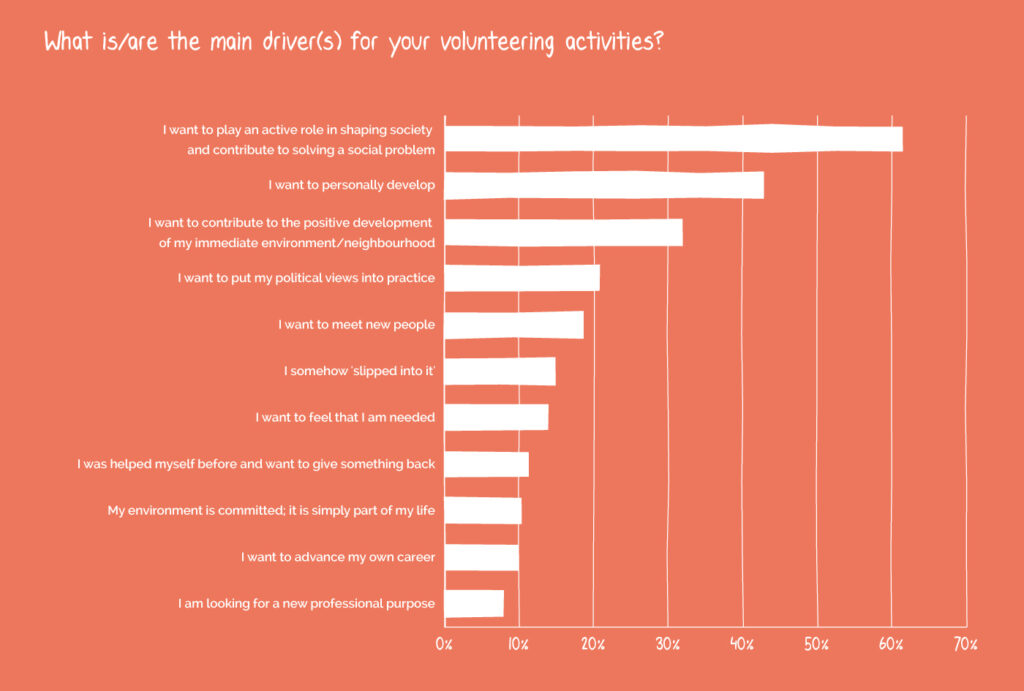
In the course of our study it became clear that above all the altruistic motive of actively shaping society and one’s own contribution to solving a problem is the most important factor for those surveyed, accounting for 61.5 percent of the respondents. In addition, 31.9 percent want their commitment to contribute to a positive development of their immediate surroundings/neighbourhood.
The motivation for personal development is also high at 42.8 percent, but still only in second place. Significantly less, namely 18.6 percent are interested in getting to know new people within the course of a volunteering activity and only 9.9 percent want to advance their career – the latter motives were, however, mentioned significantly more often by newcomers than by locals.
2. Choice of commitment follows societal trends
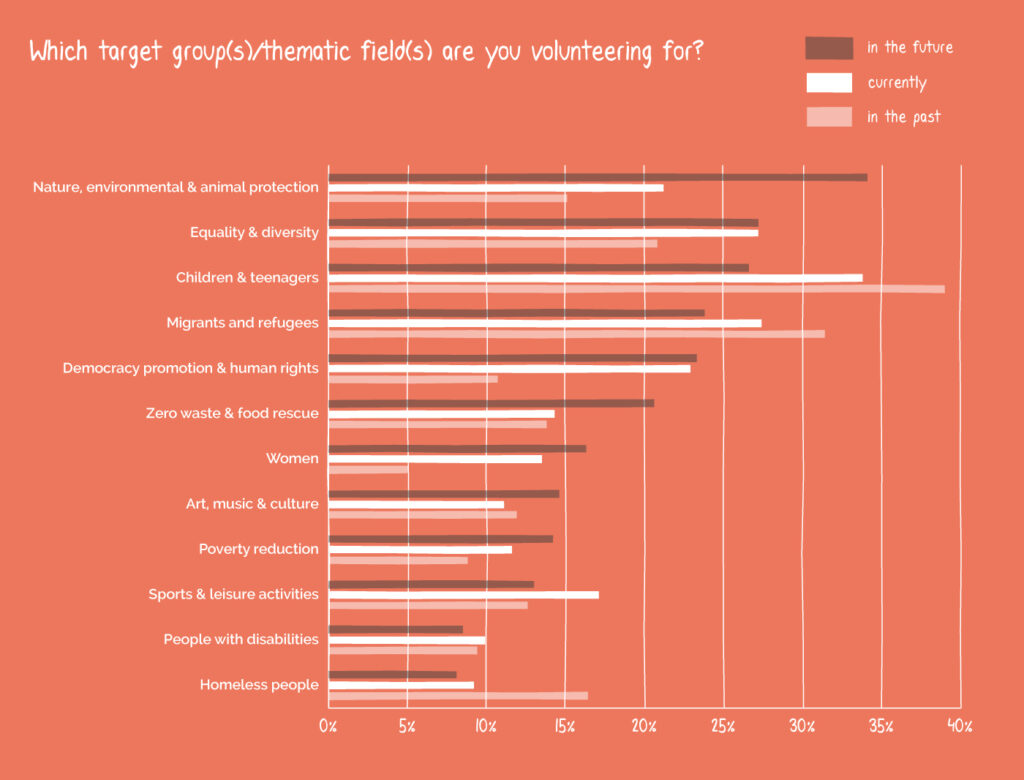
The target groups and thematic areas in which the respondents are involved are in a constant state of change and clearly driven by major societal trends.
While in the past, for example, children and young people was one of the most important volunteering topic (39 percent were committed to this in the past compared to 26.6 percent who are considering it in the future), now nature, environmental and animal protection is gaining relevance for potential future volunteers (34.1 percent want to commit themselves to it in the future compared to 15.1 percent who did so in the past). This development can most probably be attributed to the urgency and media presence of climate change.
Differences in the relevance of the topics were also found in the comparison between urban and rural areas. In large cities, equal opportunities & diversity, migrants and refugees, homeless people and zero waste & food rescue were mentioned significantly more often.
In contrast, in small and medium-sized towns as well as in rural areas, the voluntary fire brigade, voluntary services (FSJ, FÖJ, military service), nature, environmental and animal protection as well as sports and leisure activities are the more popular topics.
3. Personal recommendation is most relevant
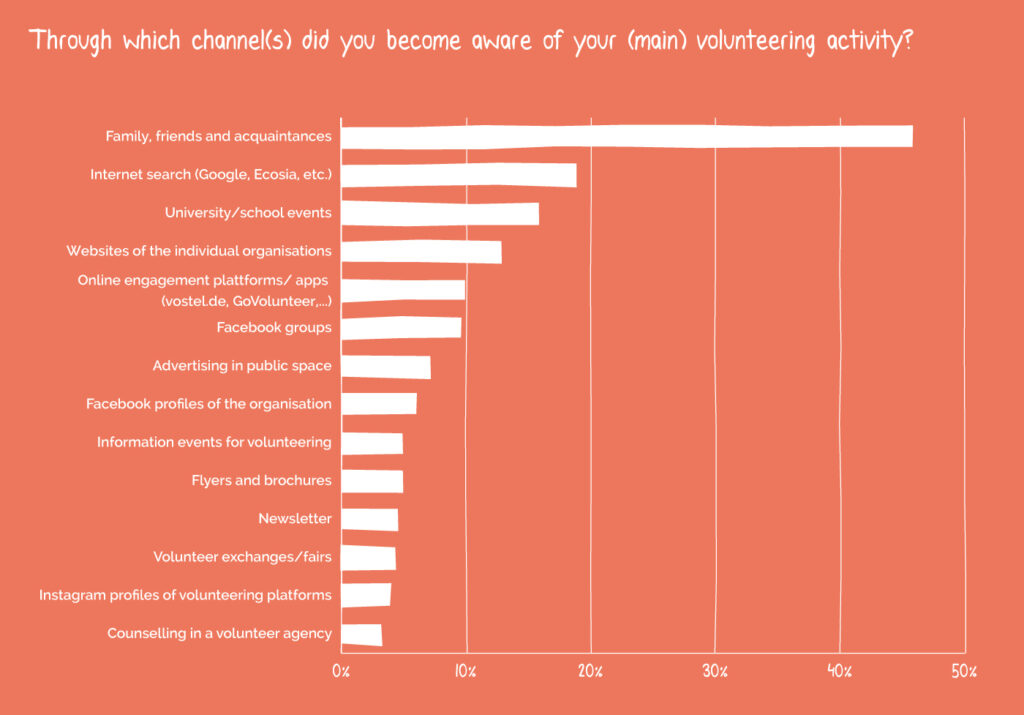
One of the key questions in volunteering research is of course how young people find their way to a volunteering activity. Our volunteer survey has shown that a significant proportion of the young generation of volunteers is attracted to a commitment primarily by family, friends and acquaintances (45.8 percent). Word of mouth is by far the best way to win new volunteers, even more in small towns and rural areas.
Although significantly lower, the second most important way to find a commitment is through internet searches (via Google, Ecosia, etc.) with 18.8 percent. This underlines the importance of the online visibility of a volunteering offer through, among other things, a good search engine ranking of the own website or of intermediaries on which the volunteering offers can be found.
Social media channels have overall only limited relevance when actively looking for volunteering opportunities. However they can become more relevant when volunteers browse social networks in search of leisure activities – i.e. Facebook groups (53 percent) or Instagram 23.4 percent.
4. Download full report of the volunteer survey
With this excerpt, we hope to have provided a first exciting insight into the world of the young volunteer generation. If you are interested in further results of our volunteer survey (including our tips for successful volunteer management), you can download the complete report at the following link.
* Data basis:
- N = 1.067
- 84% are or have been involved in volunteer work, 16% have not yet been involved in volunteer work.
- 76% female, 21% male, 2% diverse
- 69% live in large cities, 30% live in medium-sized and small towns and in the countryside
- 26% are newcomer (e.g. refugees, au pairs, language students, migrants), 73% were born and raised in Germany
(difference to 100% = not specified)

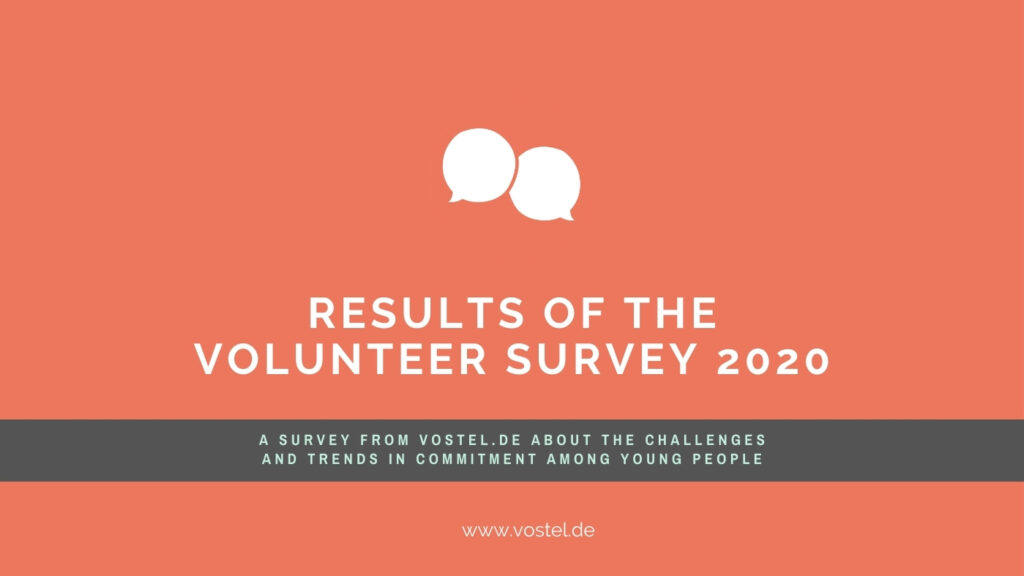
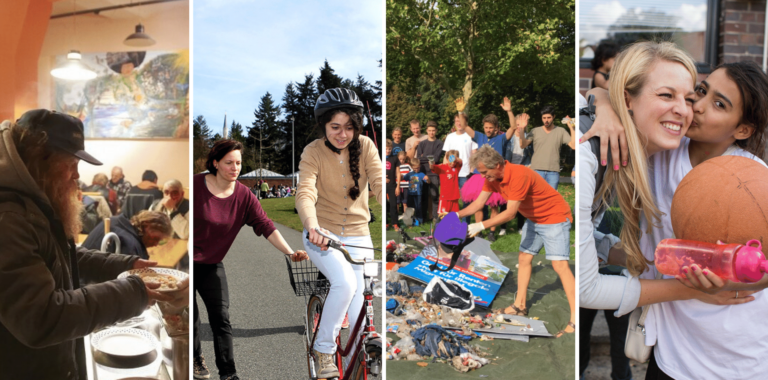
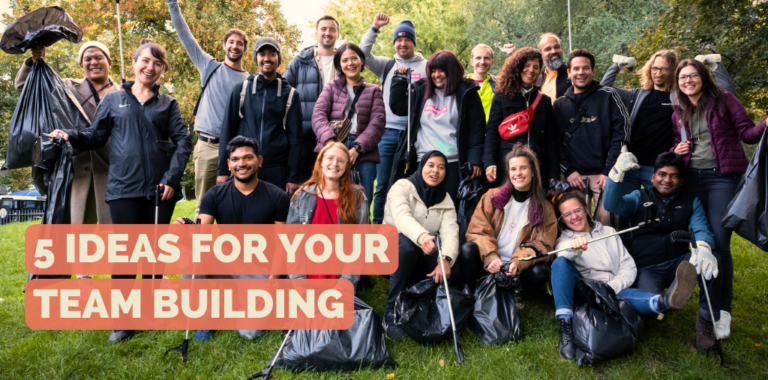
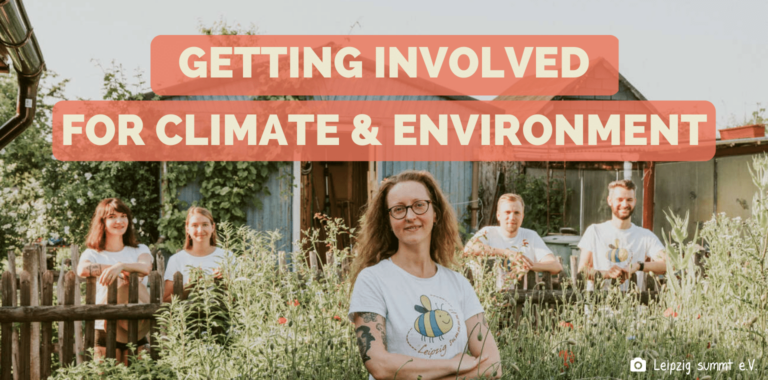

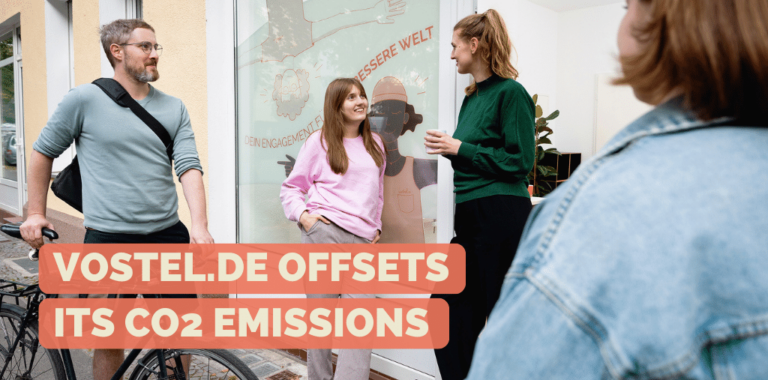
No Comments yet!